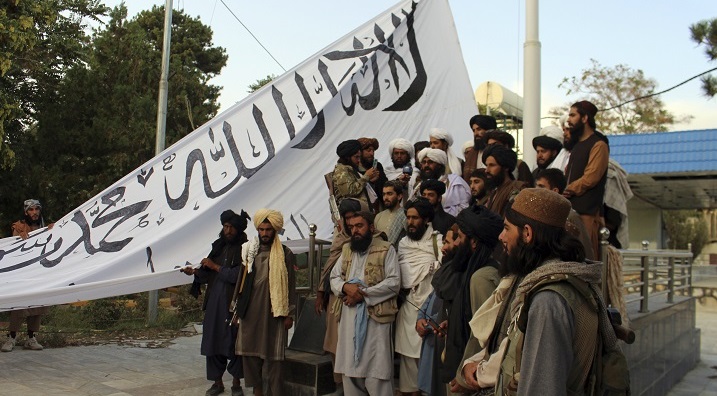
The withdrawal of Western troops from Afghanistan has provoked deep soul-searching in the West. What have we done, and what are we doing now with that rugged land in the heart of Eurasia?
This also casts a shadow on the present American choices on China. If Washington was wrong in Afghanistan 20 years ago, can it be right now about the “Middle Kingdom” and its ongoing confrontation?
Still, realistically, after 20 years and hundreds of billions in costs, was it right to continue to pay corrupt leaders not serving their country? Was it necessary to colonize Afghanistan? Was it necessary to bleed in a hopeless war? What is a realistic alternative to withdrawal?
Besides, perhaps it won’t be the end of the world for the United States.
America will keep a presence in Kabul and other centers. There are anti-Taliban guerrilla groups everywhere, the Taliban are divided, and in 2002, it took the US only a few weeks and a few million dollars to take the whole country.
In the future, what will it be?
The history of Western presence in Afghanistan is awful, and, in that, there is also a seed of the current clash with China. If Afghanistan and Iraq had been well managed, this could have kept China more on its toes. These failures contribute to convincing Beijing that the West is in decline. Still, it is necessary to recognize mistakes and not stick with them. Errare humanum est, perseverare autem diabolicum.
There were good reasons for intervention in Afghanistan and Iraq, but it might have been better to simply hire a couple of chieftains and keep them on a leash. It would have been an imperfect solution, but perhaps it would have been better than fighting endlessly for two decades.
The mistake, with hindsight, perhaps was to believe that democracy could be exported like Coca-Cola. At the time of the revolution in Egypt against Mubarak, the US decided to keep al-Sisi in reserve if the Muslim Brotherhood proved fanatical. This was the case, and al-Sisi saved the day.
Al-Sisi may be horrible to the Western palate, but the Brotherhood was worse. Today, Egypt is no paradise, but it is better off than Afghanistan or Iraq.
In the case of Afghanistan, the failure to capture bin Laden immediately, the master minder of the 9/11 terrorist attack, complicated things for years, as David Frum explained[1]. It made it impossible for the US to withdraw without retribution for the gravest assault on American soil since Pearl Harbor.
However, under the surface of the present disaster, there is also a different story: America can be insane, but it is still powerful. It sustained 20 years of useless war, and now it starts all over again.
On the other hand, it is not simply a matter of strength. The US has to get over the scorn for the lack of practical intelligence. Chasing dreams of democracy where there are no basic facilities and people can’t read and write is nonsense; as it is nonsense not to seek a liberal evolution when countries grow robust, organized, and wealthy. To refuse a liberal society would turn the whole world into a battleground of selfish, nationalistic tyrants. It is essential to tell the difference.
Practically now, the present rapid collapse of the official Afghan army reveals that the military was either in cahoots with the Taliban or full of double agents. The US was on top of a building full of nothing but woodworms and still managed to pull it through, moving out of Afghanistan.
This is like the story of Hannibal that the Greek Polybius was telling his fellow Greeks. It doesn’t say that Hannibal was a great general. It says that Rome was invincible and that Scipio defeated Hannibal by learning from him and improving his methods.
… and China
Then there is a geopolitical plus for America. China is left handling prickly Afghanistan. Beijing faces complex conundrums at the moment.
If Beijing gets very involved in it, sends many troops, and establishes a strong presence, it may turn up to be terrible because China could have to run it like the US and Russia tried to do. If China keeps aloof and gets involved too little, the Taliban may contaminate Xinjiang and Chinese Muslims. A middle ground is difficult, but China is very clever and can’t be underestimated.
The Taliban are not a unitary entity but a fluid alliance of different bands with different agendas. Unless one influential overlord emerges, vanquishing all others, they will spread like spilled water.
Besides the US, India, Iran, or Russia continue to have many assets, and they may not be in line with Chinese plans.
In addition, Pakistan is a sponsor of the Taliban and a friend of China but has longstanding bonds with the US. Now Pakistani relations with the US are weakened because of American better ties with India, but they are not gone. Pakistan is a master juggler of politics with many players, and it is unlikely to toe the Chinese line simply.
The Chinese will also try to keep relations with everyone, but it is a new and dangerous space because of the ongoing Cold War with the US.
All in all, it is another border problem when Beijing already has Myanmar and North Korea. This is perhaps an extra bonus for the US.
For America, however, it is also time for deep reflection and explanation over what is happening with China and the world’s future.
[1] See https://www.theatlantic.com/ideas/archive/2021/08/bin-laden-2001-end-war-afghanistan/619767/






There was no reason to occupy Afghanistan because of 911. That concerned a quarrel between Al Qaeda and its former sponsor. So US had other considerations such as influencing the baby stans to the North of Afganistan. Also US occupied both Afghanistan and Iraq, both bordering Iran, to intimidate that country. But was it intimidated?
At any rate US decided to introduce the mechanisms of a Fake Democracy complete with large scale corruption because that gives a congenial envitonment for US companies.
And then they prosecuted Taliban who had gone home, Taliban reconstructed itself and the war continued, Obama went to 100 000 soldiers, more American soldiers than there were Taliban fighters and he still didn’t see light at the end of the tunnel. From 2014 US fighting was limited to bombing, mostly of civilians, and CIA led terrorism.
And now US wants to concentrate on China so it takes its forces out of Afghanistan, except for its CIA terrorists, the anti-Taliban guerillas you mention. To do that its forces fled its main bases in Kandahar and Bagram in the dead of night signalling to all interested parties, including the “Afghan National Army”, that the war was over and that cities and towns are to be surrendered to Taliban, as has now happened.
It also signalled that the US forces have been defeated, else they would have left these bases with flags flying. And this defeat will be felt everywhere US forces are active which is very nearly all over the world.
For another view of the situation see this article by David Goldman:
https://asiatimes.com/2021/08/cardinal-richelieu-and-the-ghosts-of-empires-past/
This is about as close as Francesco has come to allowing the full weight of the facts on the ground to fully bring forth his cognitive dissonance on China; I mean he didn’t even take a moment to re-center his dogmas with a boilerplate spiel about why China must make itself palatable to the West and/or bend the knee to US hegemony! Just a few half-hearted speculations (i.e. wish-casting) that China may have a hard time dealing with a new Taliban-ruled Afghanistan, but mostly just morose, Kubler-Ross depression-stage grieving over the fact that America’s abject two-decade failure has done nothing to convince China that it is credibly holding its hegemonic line and so must be obeyed. You gotta get back on message man!